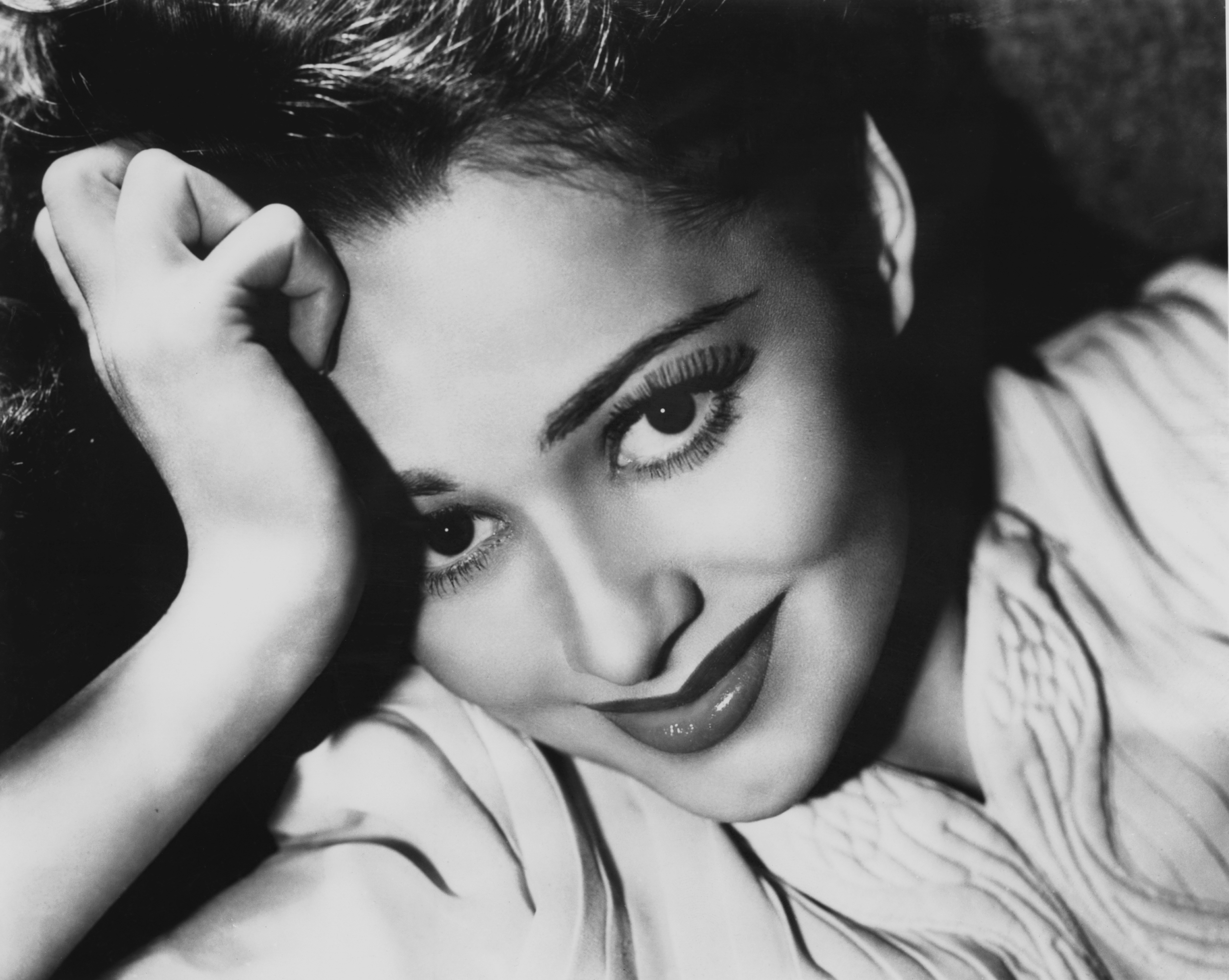Why Olivia de Havilland was the greatest actress of Hollywood's Golden Age
What was the secret of her enduring appeal?


A free daily email with the biggest news stories of the day – and the best features from TheWeek.com
You are now subscribed
Your newsletter sign-up was successful
In 2005, an interviewer from Vanity Fair asked Olivia de Havilland, who left this vale of tears on Sunday at the glorious age of 104, how she would like to die. "I would prefer to live forever in perfect health," she responded, "but if I must at some time leave this life, I would like to do so ensconced on a chaise longue, perfumed, wearing a velvet robe and pearl earrings, with a flute of champagne beside me and having just discovered the answer to the last problem in a British cryptic crossword."
During the last decade and a half it appeared as if the greatest actress of Hollywood's Golden Age would get her wish. In her last years, spent almost entirely in Paris, de Havilland lived a life of quiet dignified retirement, an old-fashioned Episcopalian and fervent anti-communist, among her gilt mirrors, candelabra, rococo furniture, books, and dogs. It was not that she wished to shut out the world; it was that she had simply outlived it, a specter from a past that had become impossibly remote.
One really means "impossibly." We are as far removed from Captain Blood than its first audiences were from William Wordsworth's Prelude, and indeed further than they were from Uncle Tom's Cabin or Moby-Dick. Virtually the entire history of motion pictures as a serious art form (as opposed to a technological experiment or a novelty entertainment) is contained in de Havilland's lifetime. The Birth of a Nation premiered a year before she was born, just as Charlie Chaplin was beginning his work with Mutual Pictures. Years before her death, critics and artists were questioning (rightly) whether cinema as an art form had utterly exhausted itself.
The Week
Escape your echo chamber. Get the facts behind the news, plus analysis from multiple perspectives.

Sign up for The Week's Free Newsletters
From our morning news briefing to a weekly Good News Newsletter, get the best of The Week delivered directly to your inbox.
From our morning news briefing to a weekly Good News Newsletter, get the best of The Week delivered directly to your inbox.
It is certainly difficult now to imagine anything like de Havilland's classic films of the 1930s being made now. Their freedom from smut and stupidity are a reminder of how hideously deformed our cultural sensibilities have become. While her performance in Gone With the Wind is justly celebrated, not least because it required her to hold her own against the formidable talents Leslie Howard, Clark Gable, Vivien Leigh, and, of course, Hattie McDaniel (who rightly won the Best Supporting Actress Oscar for which de Havilland had also been nominated), the recent controversies surrounding the film's legacy are likely to overwhelm discussions of her legacy for the foreseeable future.
This seems to me a shame, not least because for me, de Havilland will always be the star of the great swashbuckling Errol Flynn romances: Captain Blood, Charge of the Light Brigade, and Adventures of Robin Hood, especially the first of these, whose score by the Austrian composer Erich Wolfgang Korngold is worthy of the early Strauss tone poems upon which it was modeled. What was the secret of de Havilland's appeal in these films? The simple fact that hers was the most beautiful face in the history of cinema might have had something to do with it. But I think it was her contempt, quietly but unmistakably expressed, for male boorishness, not least that of her brilliant co-star Flynn. While many years later she would admit that she had a "crush" on the great Tasmanian, she was never in awe of the man she later recalled as "so naughty and so charming." If she had been, her regal disgust with his on-screen antics — her icy disdain as Maid Marian when Flynn's Robin Hood throws the corpse of a deer on the dinner table, her gradual recognition of his characters' essential good nature, those muted but unmistakable looks of concern during Blood's duel with the odious womanizer Levasseur — would not have been convincing. But they are, and will be forever.
I was in love with Olivia de Havilland when I was five years old. Her early films with Flynn were among the first live-action films I ever saw, and among the first my own children have seen. They will be adored and made the object of awe and innocent romantic yearning for as long as motion pictures are watched.
Want more essential commentary and analysis like this delivered straight to your inbox? Sign up for The Week's "Today's best articles" newsletter here.
A free daily email with the biggest news stories of the day – and the best features from TheWeek.com
Matthew Walther is a national correspondent at The Week. His work has also appeared in First Things, The Spectator of London, The Catholic Herald, National Review, and other publications. He is currently writing a biography of the Rev. Montague Summers. He is also a Robert Novak Journalism Fellow.
-
 6 exquisite homes with vast acreage
6 exquisite homes with vast acreageFeature Featuring an off-the-grid contemporary home in New Mexico and lakefront farmhouse in Massachusetts
-
 Film reviews: ‘Wuthering Heights,’ ‘Good Luck, Have Fun, Don’t Die,’ and ‘Sirat’
Film reviews: ‘Wuthering Heights,’ ‘Good Luck, Have Fun, Don’t Die,’ and ‘Sirat’Feature An inconvenient love torments a would-be couple, a gonzo time traveler seeks to save humanity from AI, and a father’s desperate search goes deeply sideways
-
 Political cartoons for February 16
Political cartoons for February 16Cartoons Monday’s political cartoons include President's Day, a valentine from the Epstein files, and more
